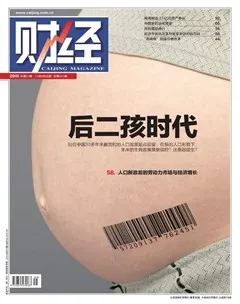Cover Story
The Labor Market and Economic Growth Post One-child Policy
China announced an end to the One-child Policy and beginning of a new policy allowing Chinese couples to have two children in late Oct. 2015. Research shows the nations strict family planning policy was the dominant force in fertility decline in the 1980s. But by the 1990s, rapid socio-economic development became the main force driving the decline in the birth rate.
Based on the relationship between population and economic development, the more positive attitude would be to accept the reality of declining fertility and address the challenges posed by demographic changes through promoting economic development. As long as Chinas economy maintains high-speed growth in the next 5-10 years and income levels reach the threshold of high-income countries, demographic indicators in terms of new income levels will be increasingly optimistic.
Mamp;As Go Into High Gear
In recent years, with the expansion of the scale of Chinas capital markets and continued rise in A-shares enterprise values, mergers and acquisitions (Mamp;A) in the A-shares market have grown substantially. Behind this phenomenon is the business logic of industrial integration, as well as market participants ambitions to realize securities arbitrage.
As Chinas capital markets mature, the valuation gap between the primary and secondary markets will narrow, as will the securities arbitrage space for listed companies. At this point, in order for market values to rise, it will be necessary to return to the coordinated effects brought by industry Mamp;A to bolster companies fundamentals, which will ultimately be reflected in stock prices and promote market capitalization.
Rising Inventory Pushes Forward Crop Price Reform
The prices of Chinas three major staple crops, namely corn, wheat, and rice, have decreased in varying degrees since early Sept. 2015. A series of signs show that institutional reform of the nations reserve prices, which used to keep rising, has begun. Efforts to reduce inventory by accelerating structural adjustment in the production of agricultural products and hence reduce financial pressure caused by rising inventory and massive subsidies have become a major driving force for systematic adjustments of various types of agricultural subsidies in China.
On Oct. 15, 2015, the State Council stated in a document that price formation mechanisms must be perfected in the agricultural sector and that prices of agricultural products should mainly be determined by the market.
China at Work Drafting E-commerce Law
E-commerce, which has been growing at an unprecedented pace in recent years, has proven to be an effective means to boost economic competitiveness and gain an edge in worldwide allocation of resources. The rapid growth of e-commerce and existing experience in regulating the industry provide a solid foundation for the formulation of the E-commerce Law. Hence, the legislative process of the law was restarted in 2013.
The E-commerce Law now being drafted will be the basic law of the domestic e-commerce sector for some time. The spirit of the legislation, aiming to promote development of the industry, impose order and protect the rights and interests of all participants therein, will determine the wording of specific provisions in the law and ultimately affect the prospects of Chinas e-commerce industry.
Revitalizing Super Girl
Mango TV, a new media firm operated by domestic satellite channel Hunan TV, has announced plans to restart Super Girl, the first talent show in China which initially helped Hunan TV emerge as a leading player in the domestic variety show market, in the first quarter of 2016.
The market environment and audience tastes have changed considerably since the launch of Super Girl in 2005. Adapting the show in a way that appeals to viewers on the Internet is key to its revitalization, which will test Mango TVs control over Internet content. The endeavor marks Mango TVs attempt to reposition itself and to operate pure Internet programs using the TV Channel + Internet model. The outcome will determine the success of Hunan TVs efforts to go on the Internet.

